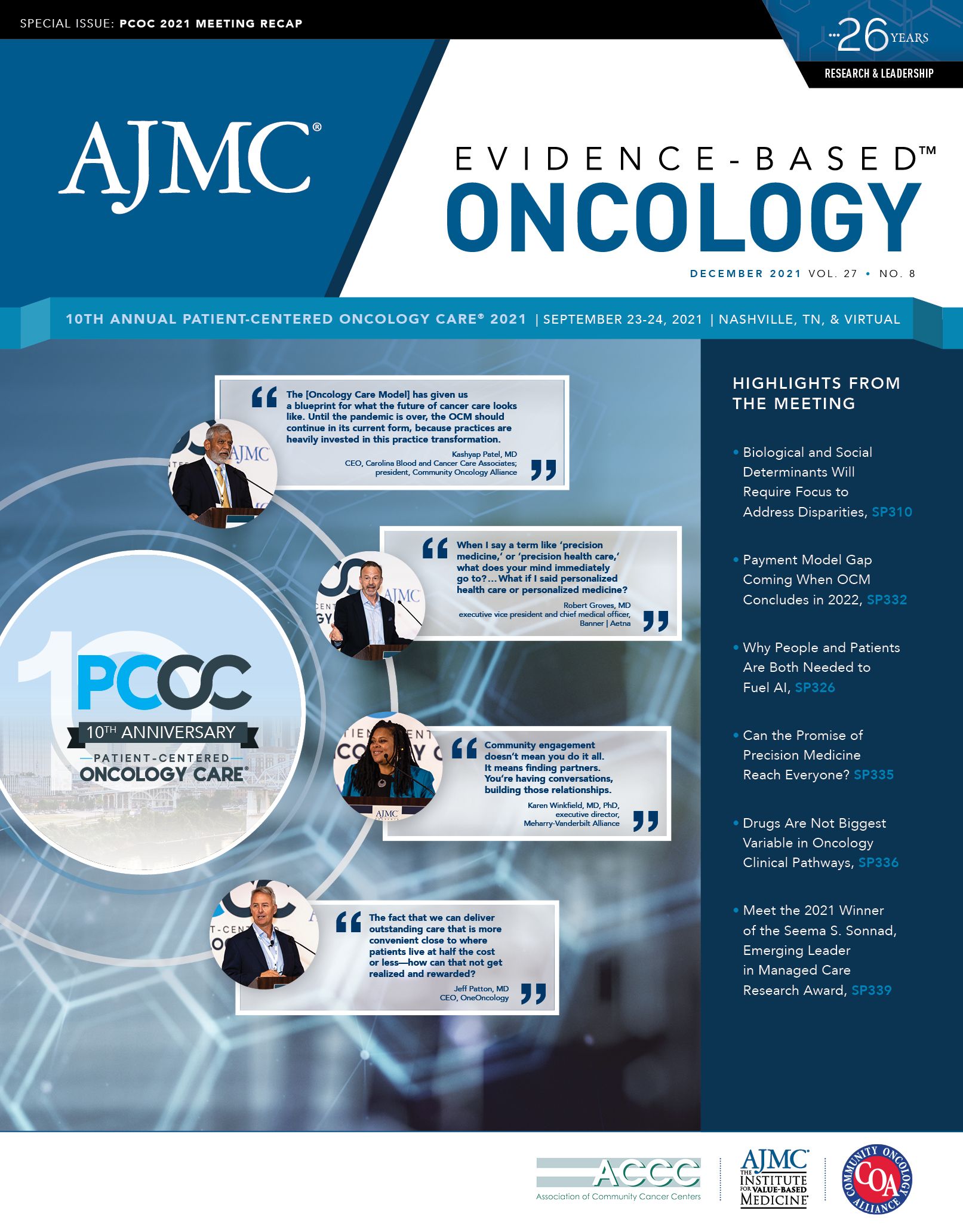
- Center on Health Equity & Access
- Clinical
- Health Care Cost
- Health Care Delivery
- Insurance
- Policy
- Technology
- Value-Based Care
PCOC SPOTLIGHT: In Taking on Disparities, What Is Actionable? What Can We Share With the Nation?
Karen Winkfield, MD, PhD, is the executive director of the Meharry-Vanderbilt Alliance, a strategic partnership between Meharry Medical College and Vanderbilt College of Medicine, Nashville, Tennessee. She is also Ingram Professor of Cancer Research and professor of radiation oncology, Vanderbilt-Ingram Cancer Center.
A good deal of evidence exists on disparities in cancer care, but there is less information on how to take those findings and turn them into actionable items, said Karen Winkfield, MD, PhD, executive director of the Meharry-Vanderbilt Alliance.
Although more data are now available on disparities, can providers, health systems, and policy makers act on the information?
WINKFIELD: There is a growing body of literature that speaks to what we’re calling implementation science. How do you do things in a different way that actually can impact the health and the well-being of communities?
My colleagues and I were honored to publish an article in January of this year1 that provided an actionable framework for how to reduce cancer disparities. It was a broad, sweeping article that looked at the different components of cancer care. One of the things that we did was we talked to experts around the country about what they were doing.
What are some of the things that they were doing that are actionable
that we perhaps could share with the rest of the nation?
WINKFIELD: It was a broad sweeping article that looked at the different components of cancer care. One of the things that we did was we talked to experts around the country about what they were doing. What are some of the things that they were doing that are actionable that we perhaps could share with the rest of the nation?
And so, we know that the cancer care continuum has several leaky areas where people fall through—whether it be from screening, prevention,
treatment—and so we pulled that together in that article that really helps to outline an actionable framework.
Beyond that, there are some folks who are doing work that is, again, really driven towards what are the things that we can do versus just doing the descriptive work, which we know—we’ve been describing the problems in terms of cancer disparities for decades. It’s time to do something. We do need more.
But there are some data that’s out there around some actionable items. We just need to do more of that work.
Reference
Winkfield KM, Regnante JM, Miller-Sonet E, Gonzalez ET, Freund KM, Doykos PM. Development of an actionable framework to address cancer care disparities in medically underserved populations in the United States: expert roundtable recommendations. JCO Oncol Pract. 2021;17(3):e278-e293. doi:10.1200/ OP.20.00630

Exploring Racial, Ethnic Disparities in Cancer Care Prior Authorization Decisions
October 24th 2024On this episode of Managed Care Cast, we're talking with the author of a study published in the October 2024 issue of The American Journal of Managed Care® that explored prior authorization decisions in cancer care by race and ethnicity for commercially insured patients.
Listen
Exploring Racial, Ethnic Disparities in Cancer Care Prior Authorization Decisions
October 24th 2024On this episode of Managed Care Cast, we're talking with the author of a study published in the October 2024 issue of The American Journal of Managed Care® that explored prior authorization decisions in cancer care by race and ethnicity for commercially insured patients.
Listen
2 Commerce Drive
Cranbury, NJ 08512
AJMC®
All rights reserved.